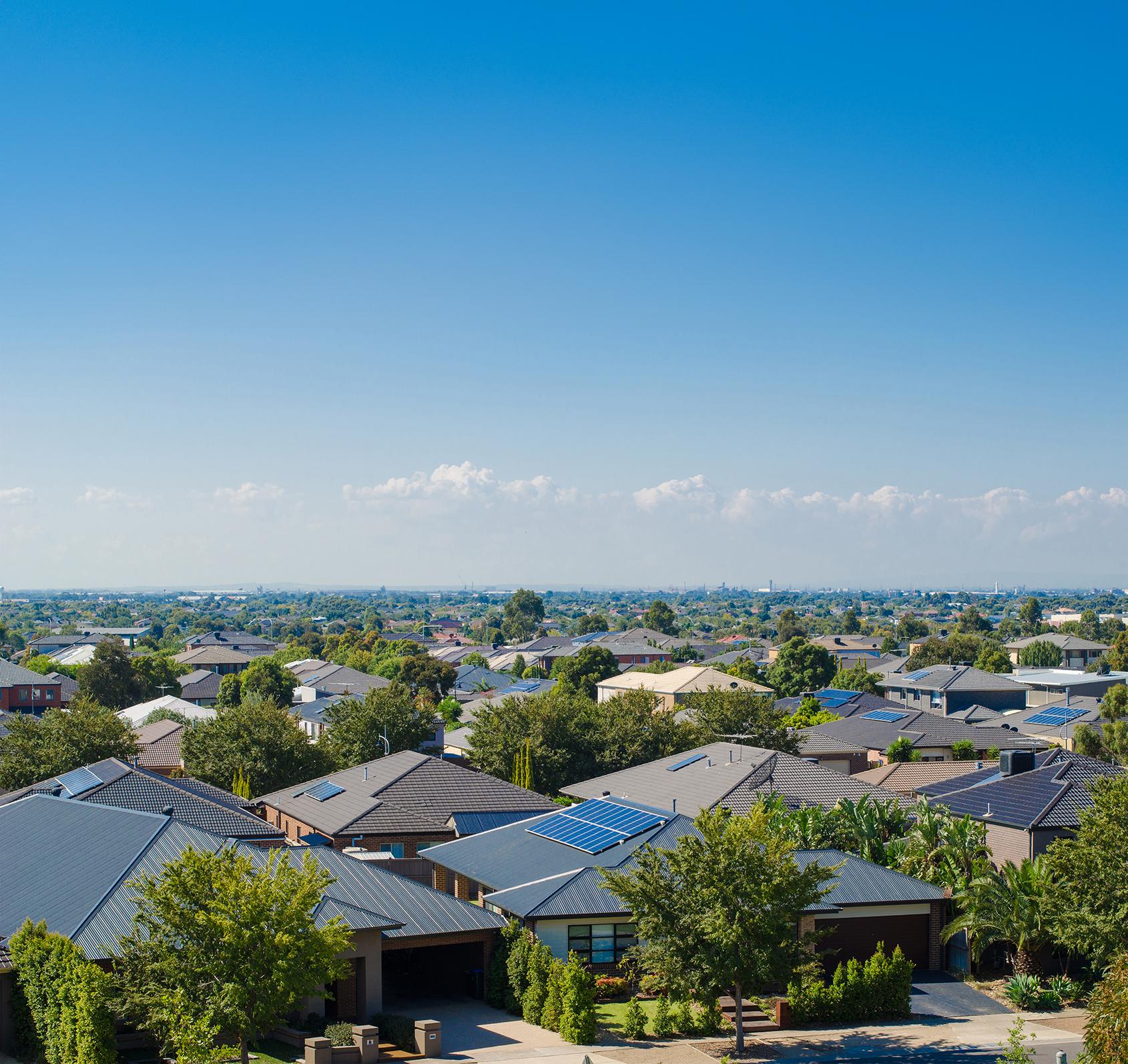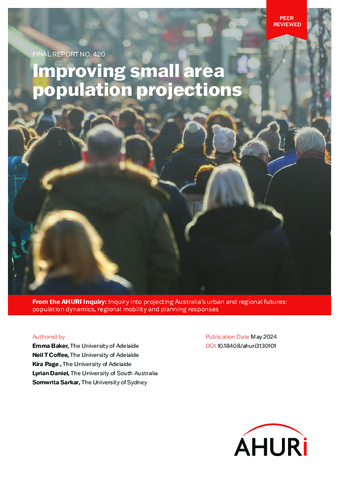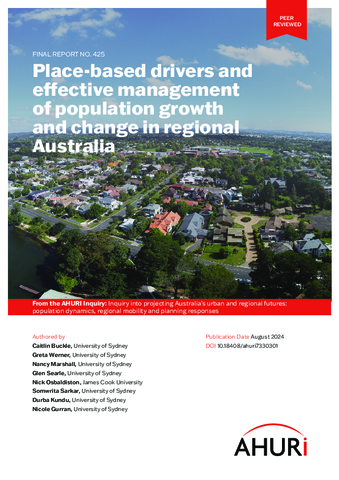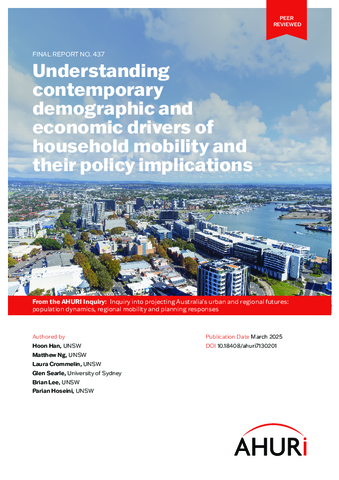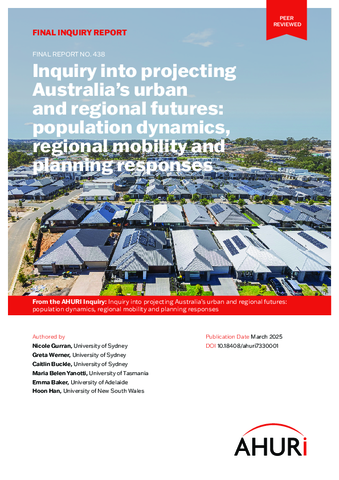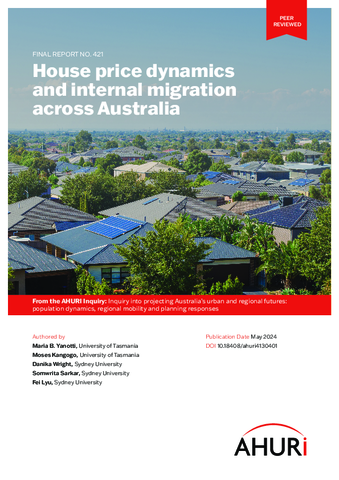From the AHURI Inquiry: Inquiry into projecting Australia’s urban and regional futures: population dynamics, regional mobility and planning responses
This research examines how population migration to particular suburbs or regions across Australia affects house prices in different suburbs and regions.
The research found that when people move into a particular region house prices increase not only in that region and close surrounding areas, but may also rise in other, more distant locations. Furthermore, these house price increases may also trigger successive population movements of people moving out of that first region and moving to other parts of the state or to other states, in turn triggering a succession of house price impacts in these new areas.
The research also looked at migration patterns during COVID-19 and found that, with increased numbers of people migrating out of the state, Victoria became a strong contributor of house price changes in every other state or territory. Within each state and territory, the trend is for population movements from inner-city suburbs towards outer city areas and regional areas.
The influx of people into regional cities led to a worsening of housing affordability, with limited stock and very low vacancy rates, in part due to the lack of social and affordable housing options in regional areas. Given the traditional attraction of regional areas as relatively affordable locations, these areas are home to a high proportion of low-income and tenant households who are facing rising housing costs.
Besides targeting policies that provide financial support for households experiencing housing stress in regional areas, policy makers should be aware that policies focussed on particular regions can have unintended consequences for nearby regions. The connectivity that operates across open borders means that migration increases and house price rises due to a local policy may increase house prices for other regions that may not get a direct benefit from the policy.

